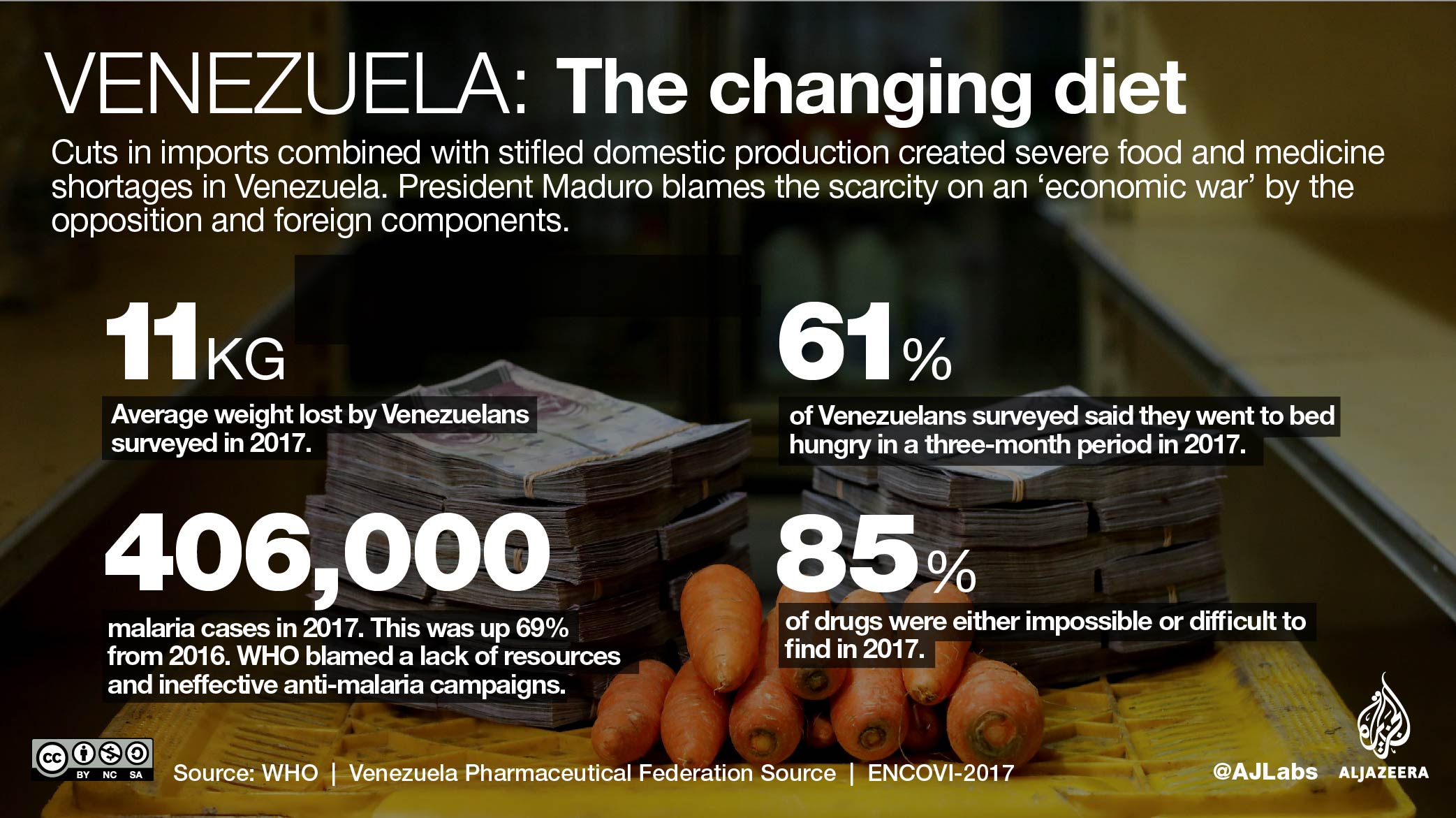 |
Venezuela’s economy has been rapidly deteriorating for years, driving a growing number of Venezuelans into poverty and creating scarcities of basic food items and medicine.
Since President Nicolas Maduro took power in April 2013, Venezuela’s bolivar has lost 99.99 percent against the US dollar on the black market. Few Venezuelans have access to the official exchange rates, which have been controlled since 2003.
The International Monetary Fund (IMF) said they expect Venezuela’s inflation rate to hit one million percent this year.
In an effort to stem hyperinflation, Venezuela rolled out a new currency last month, which slashed five zeroes from the bolivar and tied it to the petro cryptocurrency.
The measure was part of a raft of financial reforms, which also included a 3,400 percent minimum wage hike and a rise in the price of fuel.
“I want the country to recover and I have the formula. Trust me,” the embattled President Maduro said in a speech broadcast on state television when he announced the measures on August 17.
But critics have said the policies will only make matters worse.
In a tweet, Steve Hanke, a professor in applied economics at Johns Hopkins University, called linking the new currency to the petro “a scam”.
“Appearances change, but, in reality, nothing changes,” he said.
 |
Venezuela’s economic crisis has given rise to a shortage in goods including food items and medicine.
Critics have accused the government of economic mismanagement which shriveled domestic production of goods, while imports were cut.
Many Venezuelans have called malnutrition in the country due to the shortages the “Maduro diet”.
Maduro, 55, has blamed an “economic war” waged by opponents for the country’s woes.
Maduro’s predecessor, Hugo Chavez, who died in 2013, long relied on oil revenues to fund his social programmes.
But when crude prices crashed from 2014 onwards, Venezuela was left with a hole in its budget.
To make matters worse, oil production in the country has taken a tumble due in part to a lack of basic equipment.
 |
Since 2014, Maduro’s government has been challenged by a series of protests in which dozens of Venezuelans died and thousands were arrested.
In May, the embattled president was re-elected in a vote which was boycotted by the main opposition parties.
Source: Al Jazeera and news agencies




